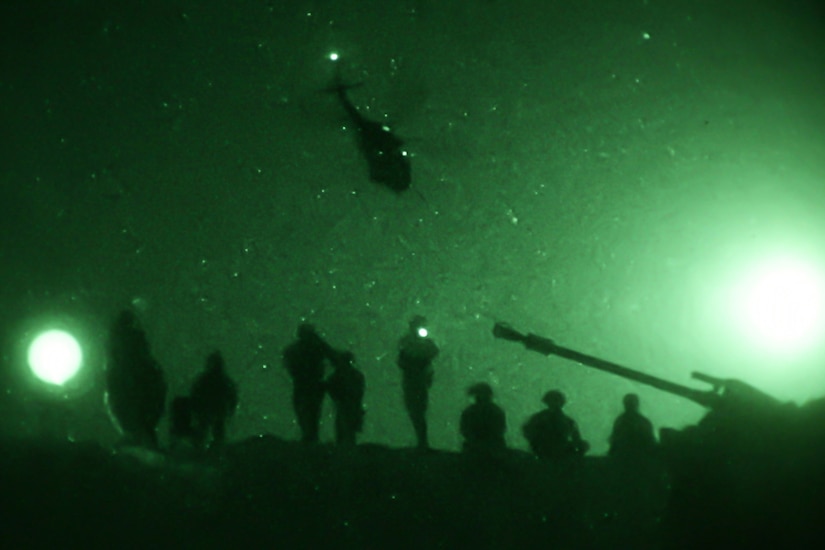March 3, 2021 | , DOD News
Ten rockets were launched at the U.S. and ally-occupied Al Asad military base in Iraq early this morning. One American contractor who was sheltering suffered a "cardiac episode," and later died as a result, the Pentagon press secretary said. There is an investigation into who is responsible for the attack.

"We cannot attribute responsibility for the rocket attacks at this time, and we do not have a complete picture of the extent of the damage on base," John F. Kirby said during a press briefing Wednesday afternoon . "We stand by as needed to assist our Iraqi partners as they investigate."
Kirby said he's not aware that the Iraqis have asked for assistance in investigating the rocket attacks and that any response to the attacks will need to wait until that investigation is complete.
"Let's let our Iraqi partners investigate this, see what they learn, and then if a response is warranted, I think we have shown clearly ... that we won't shy away from that. But we're just not there yet."

On the ground at Al Asad, Kirby said, the department has counted ten "impact points" from rockets that are believed to have been launched from points east of the installation. He also said the counter-rocket, artillery and mortar system, or C-RAM, also engaged those rockets, but that there's no indication now as to how successful the C-RAM's engagement was against them.
"I suspect as time goes on, we'll know a little bit more," he said.
Just last week there were three other rocket attacks in Iraq. One attack in Irbil killed a U.S. contractor and wounded a service member and others, while an attack in Baghdad's Green Zone caused property damage. An attack at Balad Air Base also wounded personnel there.
The U.S. responded to those attacks Feb. 25, with airstrikes against infrastructure used by Iranian-backed militant groups in Eastern Syria.
"When we conducted this strike last week in Syria," Kirby said, "we believed that it was measured and proportionate. It was intended to take that compound out and not allow these groups to use it, but also to send a signal about how seriously we take our responsibilities to protect our people."

It's the hope of the department, Kirby said, that the strike would have a deterrent effect, rather than escalate the situation.
"Nobody wants to see this escalate into ... a tit for tat," Kirby said. "That is, that's not in our interest. It's not in the Iraqi people's interest."
Just last year, in January 2020, as many as 16 missiles were launched at Al Asad, with 11 of those missiles striking. Although the Iranian missiles damaged equipment and infrastructure at the installation, training and defensive readiness there paid off in no lives being lost, the Chairman of the Joint Chiefs of Staff Army Gen. Mark A. Milley said.







No comments:
Post a Comment